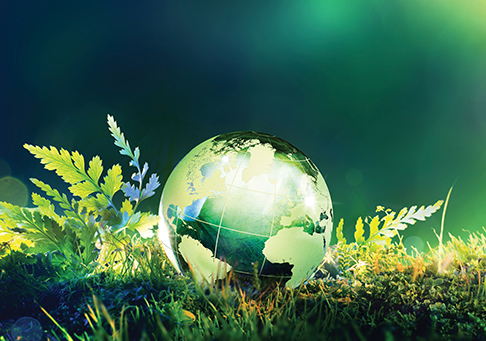In holding the environmental sector itself to account, one analytical services company is forcing change. Sustainability can begin with simply breaking old habits, HELEN COMPSON learns.
A multi-billion dollar global business is breaking the mould in the very quarter you’d think would least need it.
“Yes,” the sales and marketing director for ALS Environmental, Wendy Martindale, concedes, “ quite ironically, the environmental industry still has a lot of work to do around sustainability, we necessarily use a lot of consumables … “
So ALS Environmental, which has 350 testing labs around the world, is taking the lead in a sector that must use – and discard – millions of plastic and glass sample containers every year.
As one of the UK and Ireland’s leading providers of analytical services, it helps water, land and waste management companies comply with stringent regulatory standards via accurate testing and the legally defensible data produced.
Its extensive range of environmental testing solutions includes laboratory analysis, field testing and site sampling which, in relation to water, support the maintenance of chemical and microbiological parameters for accredited drinking water and wastewater treatment.
It has built up a network of laboratories and service centres on these shores over the past 20 or so years, during which time it has also learned a lot about how the operators operate.
Wendy said: “In the UK alone, we handle thousands and thousands of samples every single year and they are most often collected in plastic or glass containers, depending on the type of analysis required.
“The issue we have is that a lot of our customers over-order containers and a significant portion come back empty, and we can’t use them after that because effectively they have been contaminated.”
ALS supports environmental testing for a number large of infrastructure projects across the UK. It is not unusual for these for these projects to see many samples taken but not subsequently tested. This inevitably creates a huge demand for plastic and glass sample containers which would all go to waste without ALS’s commitment to recycling, but it really is a shame to use them unnecessarily in the first place. As these sample containers are typically moved around by road there is an environmental implication, not just related to the glass or plastic consumables themselves, but also the emissions of vehicles used to transport them.
ALS Environmental is now ramping up its own drive towards sustainability, beginning with discussions around the ordering of excessive containers.
“There will be no getting away from it,” said Wendy. “We are saying across our network ‘we will challenge you when you order hundreds of containers or offer alternatives where appropriate’.”
For its part, ALS Environmental is taking steps to hugely boost its level of recycling, ensuring those sampling pots don’t end up in rubbish dumps.
And, in a truly innovative development, it has introduced a new, biodegradable ‘eco-box’ that is suitable for collecting samples when testing soil.
The eco-box itself has undergone a battery of tests to ensure the material used won’t affect samples.
“The boxes have gone down an absolute storm with customers, not least because we have been brave enough as an industry to take the step,” she said.
“We have promoted the alternative to plastic and we think we are unique in this field – we haven’t found any other laboratories doing this.”
The company was working hard to get its message out there, across the environmental sector.
First, it wanted customers to think carefully before ordering containers. How many did they really need?
Secondly, it wanted them to be more responsible and to consider the alternatives, said Wendy. “Join us, come with us, on this journey!
“Rather than sampling in the habitual way, let’s investigate whether we can do things differently and that bit more sustainably.”
www.alsenvironmental.co.uk



